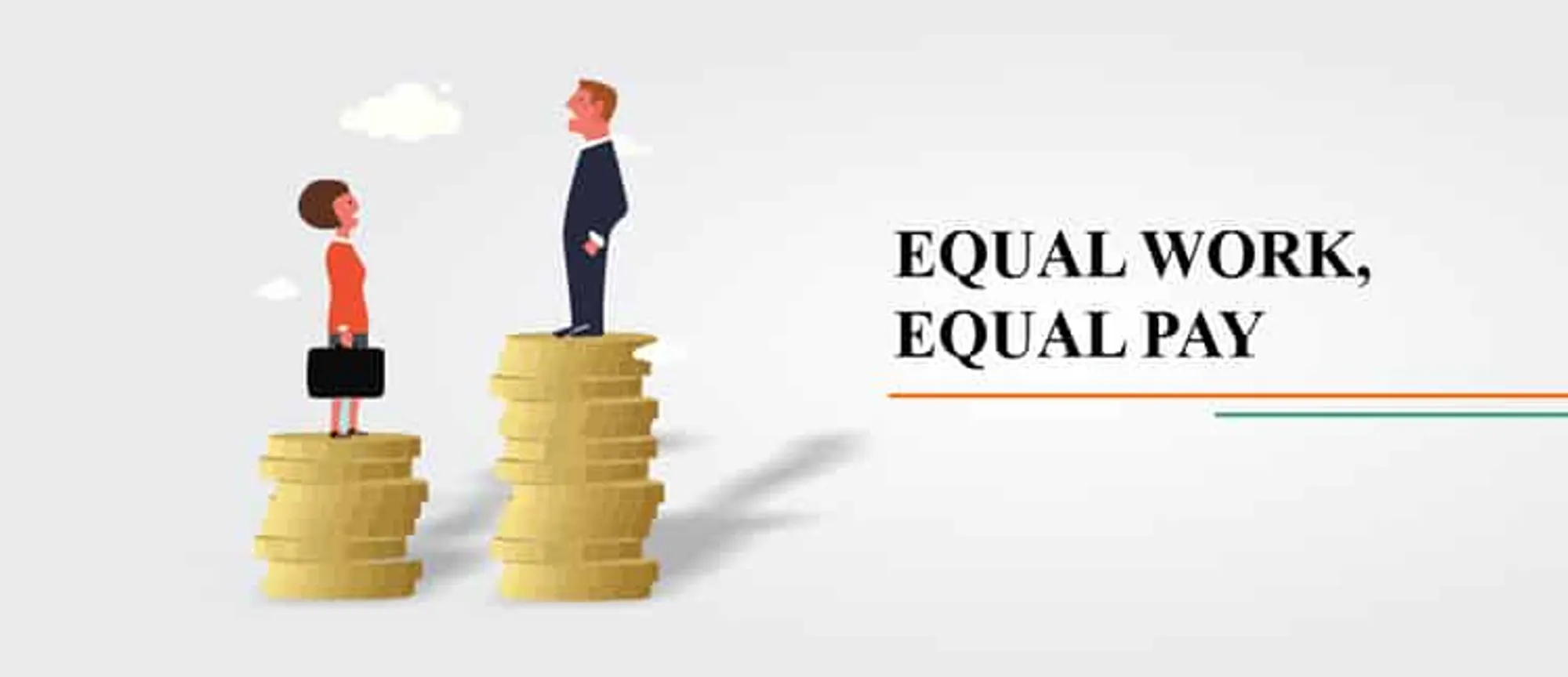Every human being, who does any work, expects and deserves a remuneration which should be in par with the work and it should be equal for all those who are doing the same job.
Fair enough, if there are two people doing the same job, they should get the same kind of reward for it. This is a principle of natural justice which is embedded in the Article 39 of the constitution as a Directive principle of state policy. It is sheer discrimination if equal wages aren’t given for equal work. The constitution in its fundamental structure abolishes discrimination and this disparity may be challenged for being against the principles of equality too.
The issue of unequal pay for same amount of work pops up commonly in the context of sexual discrimination, in relation to the gender pay gap. As far as women are concerned, they are considered to be naturally inferior and hence, incapable for getting equally rewarded. This issue has been in the flame for a long time now.
The women participation rate in India was around 30 per cent between 1901 and 1951 whereas it hasdecreased to 25 per cent now, in 2015. Majorly, Women’s participation is in light industries and the unorganized sector, where the wages are usually lower. It is estimated that about 94% of working women participate in the unorganized labour sector; this further contributes to the existing pay gap.
There are cultural barriers too. Women have a constant responsibility of being a home-maker first and for that reason; it is partially believed that they cannot do as much justice to the job as a man can. They are, at times, not given the same kind of education and exposure which also allows the society to judge their potential.
International problem
As far as unequal wages are considered, it isn’t a problem in India only. Many countries in Africa, Asia and South America are also facing the same issue. The developing world has yet not accepted the women power with much zeal. Hence, this is an international problem and needs to be tackled by all the nations in collaboration with each other.An initiative has been taken at international sphere for this, C100 Equal Remuneration Convention, 1951, which addressed the issue of equal pay between men and women for work of equal value. This convention requires all member states to direct their national laws and policies towards guaranteeing equal remuneration to all workers, regardless of gender.
Impact
India is a developing country and it is needs the participation of female in the economy at a very high rate but this discrimination at the wages not only effects the financial but the mental and psychological conditions too. The participation of women will not only increase the GDP, but also result in increased growth and profitability in the private sector.

